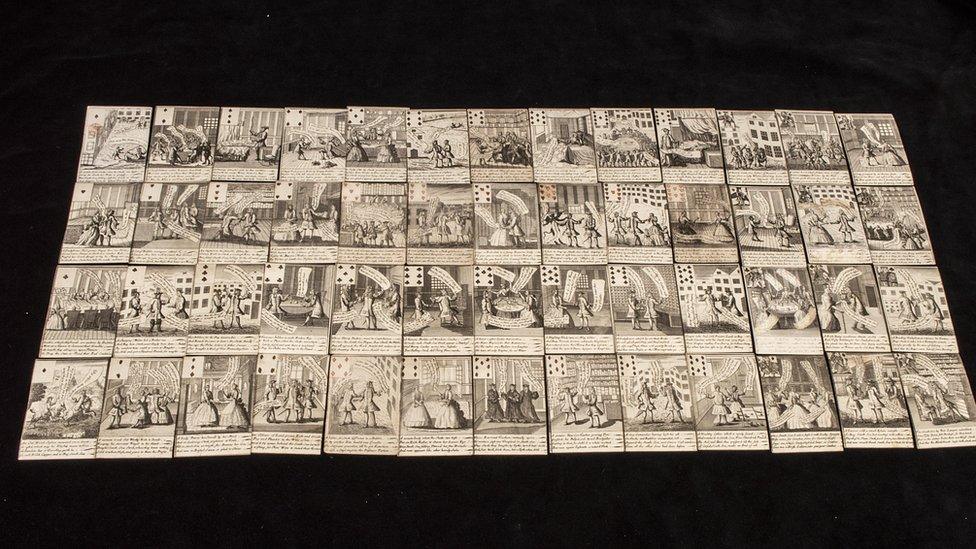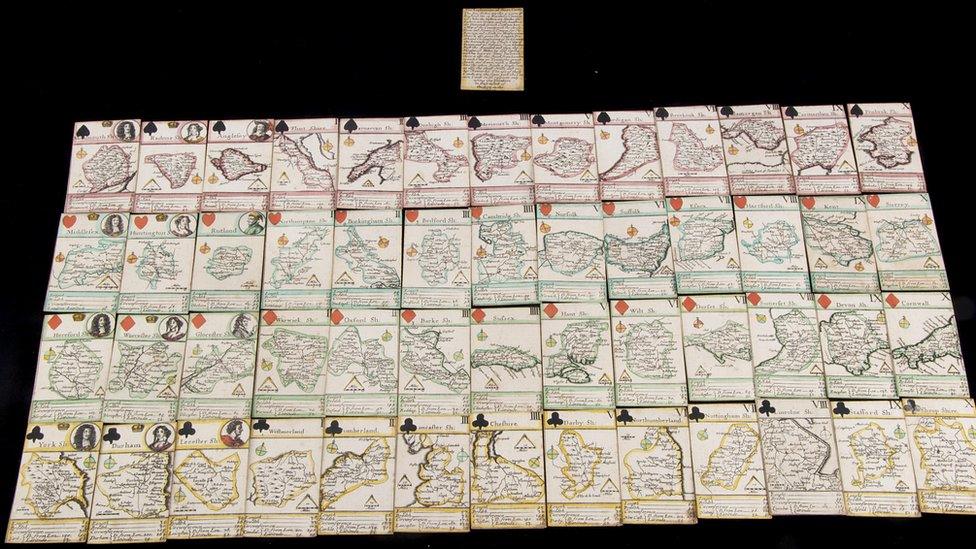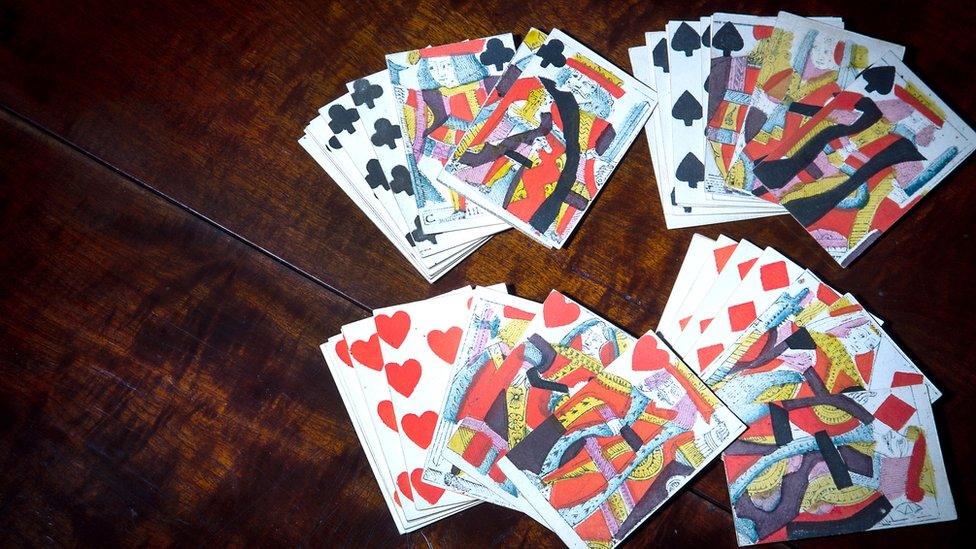Rare playing cards sell for £50k in Berkshire
- Published

The set of cards that made the most money was from 1720 and entitled Thomas Bowles South Sea Bubble Stock-Jobbing
A collection of rare playing cards from the 17th and 19th Centuries has sold at auction for an "unexpected" price, an auction house has said.
The 52 lots went under the hammer at Special Auction Service in Newbury, where they had been expected to reach £20,000.
The items actually sold for a total of £51,174.
Daniel Agnew, teddy bear, toy and doll specialist, said: "The prices reflected their quality and uniqueness."
The collection included sets by the major British makers Hunt, Creswick and Hall and were in "exceptional condition", he added.
The smallest collection went for £100 while the largest fetched £15,000.

Miniature map playing cards designed by map maker Robert Morden sold for almost £14,000
"It is rare to have one of these 17th and 18th Century pictorial playing card sets at auction, so to have this many altogether is very unusual, for things this ephemeral to survive is amazing.
The set of cards that made the most money was from 1720 and entitled Thomas Bowles South Sea Bubble Stock-Jobbing, also known as The Humours of Change Alley.
The 52 cards each tell a different story about the world's first financial collapse, how money was lost and its link to the slave trade.
The South Sea Company was formed in 1711 in London and its purpose was to supply 4,800 slaves each year for 30-years to the Spanish plantations in Central and Southern America.
The deck was estimated to sell for between £5,000 and £8,000 but made £15,000.
Similarly, a set of Robert Morden miniature map playing cards from 1676 had been expected to fetch up to £3,000 but sold for £13,750.
Mr Agnew said: "It was a wonderful result for such rare playing cards. We were delighted that they received so much interest and the frenzied bidding and prices realised reflect their quality and uniqueness."

Follow BBC South on Facebook, external, X, external, or Instagram, external. Send your story ideas to south.newsonline@bbc.co.uk, external.
- Published28 September 2023

- Published7 December 2023

- Published7 December 2023

- Published6 December 2023
